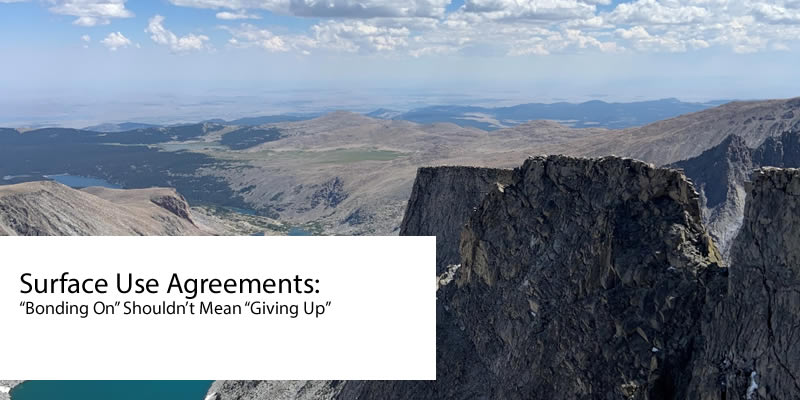In 2005, Wyoming’s legislature enacted the Wyoming Split Estate Act as a means to rebalance the relationship between surface owners, mineral owners and those engaging in oil and gas operations. The act, which applies when the owner of the surface owns less than all of the minerals under the land, accomplishes several important things. First, oil companies must “reasonably accommodate existing surface uses” W.S. § 30-5-402(a) (2021). Furthermore, oil companies must pay surface owners compensation equal to “the amount of damages sustained by the surface owner for loss of production and income, loss of land value and loss of value of improvements caused by oil and gas operations.” W.S. § 30-5-405(a)(i) (2021) [emphasis added]. These obligations are absolute and are not altered unless the surface owner enters into a surface use or similar agreement with the operator. Furthermore, when the surface is damaged, and there is no agreement to compensate the landowner for that damage, the surface owner can file suit in District Court to recover its damages in accordance with W.S. § 30-5-406(c) (2021).
Prior to entering the land, operators are required to provide notice and attempt “good faith negotiations” for a surface use agreement. W.S. § 30-5-402(c) (2021). The landowner is often reminded that, should these negotiations fail, the operator has the right to enter the property and conduct operations under a “good and sufficient surety bond.” W.S. § 30-5-402(c)(iv) (2021). This right to “bond on” is often touted as a trump card for operators and a disincentive for landowners to be overly demanding in their negotiations. In reality, however, this option is not as attractive for operators as they may suggest.
Surface owners should remember that an operator “bonding on” to the property is not relieved of the obligation to provide compensation for damages suffered by the surface owner. Nor does “bonding on” remove the landowner’s right to bring suit in District Court to recover those damages.
A prudent and reasonable operator will want to have some say in what damages are compensated for, how much the landowner will be compensated, and to avoid the uncertainty of future litigation that might result in the event an agreement is not made. Thus, while “bonding on” may be a legitimate threat, operators and surface owners alike, are best served by entering into a fair and reasonable surface use agreement.

